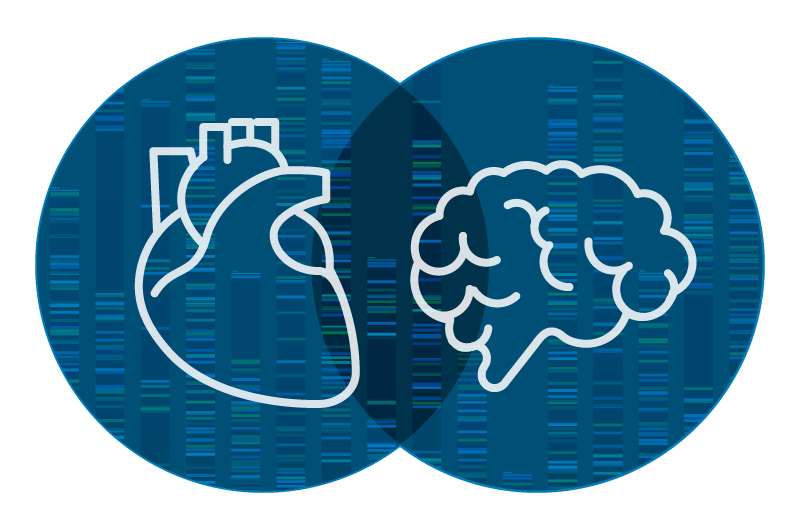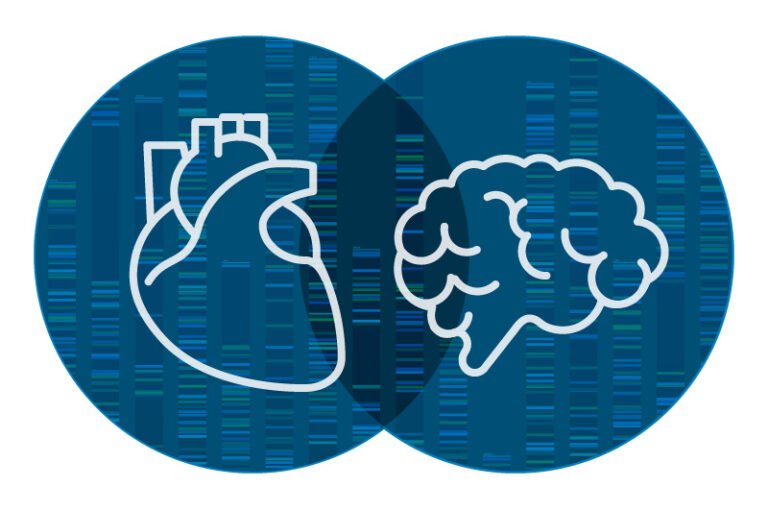

Cardiology and neurodevelopmental researchers have more questions than answers about the possible genetic link between congenital heart disease (CHD) and autism spectrum disorder (ASD).
An ongoing study at Boston Children’s Hospital aims to uncover those elusive answers by taking a closer look at the neurodevelopmental and genetics of children with cardiovascular disease. Researchers want to see if there is a gene that is responsible. both ASD and CHD. A better understanding of possible genetic relationships could help scientists develop targeted treatments and help families learn more about the fundamentals of their children’s health.
“There may be genes that can cause both autism and congenital heart disease, or genes that have complex symptoms due to multiple genetic changes, and that explains why children may have neurodevelopmental or cardiac problems.” “It’s reasonable to speculate that this may explain why we have this disease,” said study co-author Amy Roberts, MD. – Director of the Center for Cardiovascular Genetics and one of the principal investigators of this study.
CHD and neurodevelopment are linked, but the relationship with autism is unknown
Studies have shown a strong association between CHD and neurodevelopmental delays. Despite living long and healthy lives after cardiac treatment, many children with CHD experience neurodevelopmental problems. They may have difficulty communicating, eating, and moving, and may have trouble doing schoolwork or staying focused.
However, little is known about the genetic relationship between CHD and ASD, except for studies that indicate the need for further research. For example, researchers have found that people born with CHD are about 33 percent more likely to be diagnosed with ASD.
Roberts sees many children with both CHD and ASD in the center’s clinic. Normally, she would have had other tests to try to identify the genetic cause of autism, she says, but the tests weren’t necessarily trying to find the cause of CHD either. When the Boston Children’s Rare Disease Cohort (CRDC), an initiative to study the genomics of about 50 rare diseases, called for applicants, she was alerted via internal email to an immediate opportunity to collaborate on the two diseases. Did you know: Maya Chopra, MBBS, FRACP, is a clinical geneticist at the hospital’s Rosamund Stone Zander Neuroscience Center.
“The pace of discovery of genes for autism and other neurodevelopmental disorders is rapid,” said Chopra, the study’s other principal investigator. “But discoveries often come from large study groups with little detail about individual patients. We often wonder, ‘Is there a physical difference?’ What was their growth trajectory? So, did someone look into their hearts?
Elusive genes and the search for clear answers
Rather than thinking only about “heart genes” or “brain genes,” Chopra and Roberts want to learn more about the broad but complex genetic mechanisms that are important for both cardiovascular health and neurodevelopment. I want to learn.
The study will also include children diagnosed with neurodevelopmental disorders and mild CHD, rather than strictly looking at the genetic profile of children aged 2 years and older who only have ASD and severe CHD. This is because mutations in the same gene can cause not only ASD but also other neurodevelopmental conditions such as intellectual disability and epilepsy, and care for these conditions may overlap clinically. Chopra says. And rather than restricting participants to those with severe CHD, it made sense to include children with more subtle structural heart changes, Roberts said. Because they too may experience neurodevelopmental problems.
There are other considerations in their study. “Some children had serious illnesses as newborns, had surgeries, and ended up in intensive care,” Roberts said. “Parents and doctors often attribute neurodevelopmental difficulties to their complex medical history. That history may play a role, but there are genetic mechanisms that cause both. It could be that they have a genetic mutation that makes them more likely to develop autism. Why? That’s one of the questions we’re trying to answer.”
Chopra adds: “We want to make discoveries in research, but we also want to put answers into the hands of families. A specific genetic diagnosis can impact not only the individual patient but also the medical management of the entire family. We recognize the impact of this type of work and want to build on it.”
If you would like more information or would like to involve your child in research, please contact Zoe.Frazier@childrens.harvard.edu. Do you have a patient you would like to include in your research? Contact our team at the Center for Cardiovascular Genetics.


